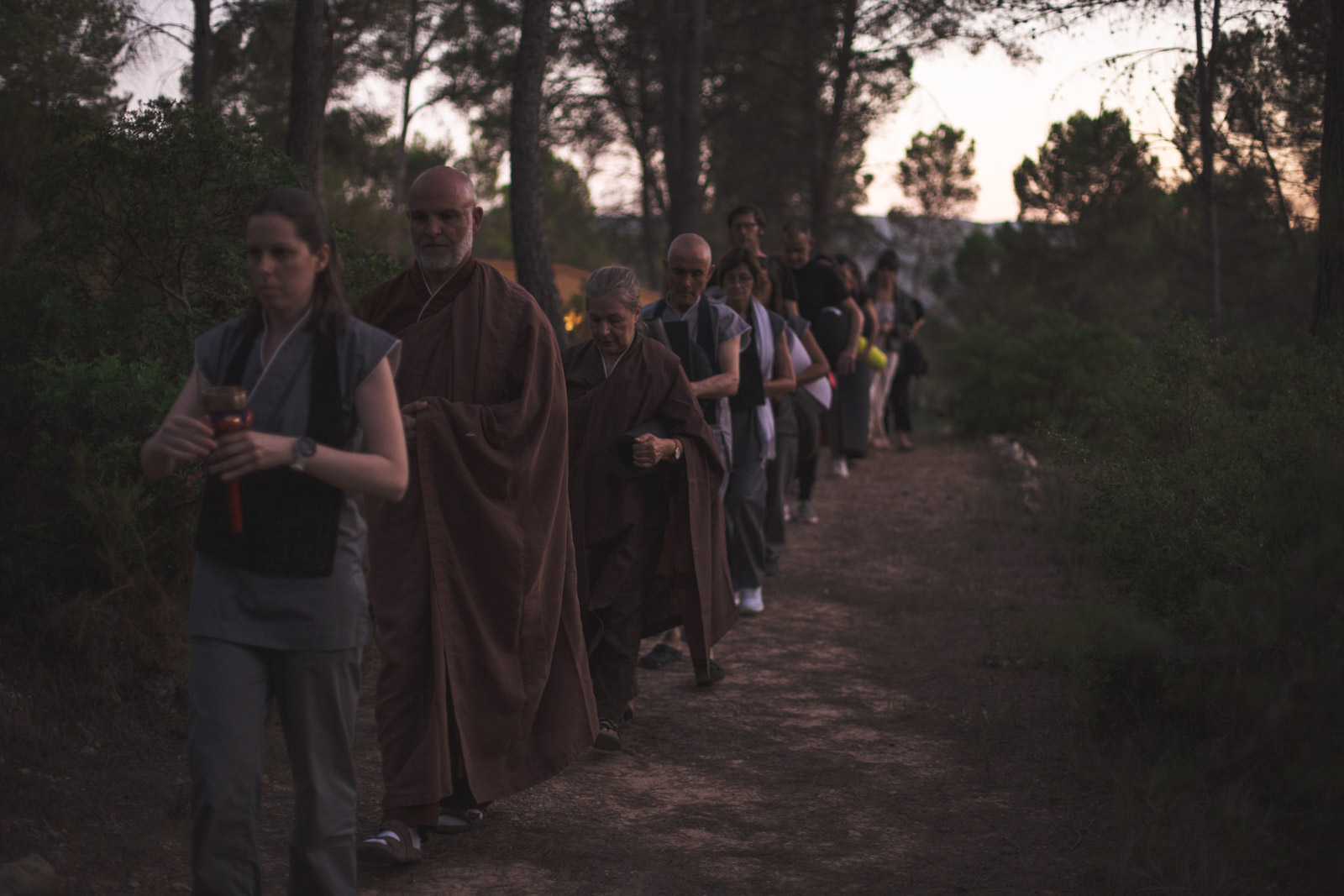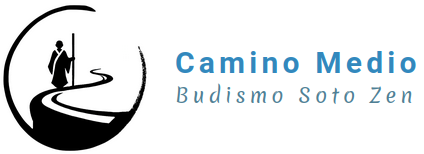In many Eastern spiritual traditions, and especially in the way we usually perceive Zen, We tend to see the teacher as a "guru". This vision, can lead to misunderstandings and false expectations. It is easy for us to imagine the Zen master as someone with high spiritual qualities, with all the answers and capable of guiding us as an infallible and unquestionable leader. This way of approaching the figure of the Zen master can be dangerous for both the disciple and the teacher.. In the Buddhist tradition, the teacher is a "good friend" or kalyanamitra, someone who accompanies people on their spiritual path with a relationship based on mutual trust and support, instead of establishing a relationship from a rigid hierarchy.
in Buddhism, the concept of kalyanamitra (good or noble friend) plays a fundamental role in spiritual development. A good friend is someone who, for your experience and understanding, can accompany and guide in the awakening process. This is not a figure who imposes his wisdom from a position of power, but of someone who shares the path and offers guidance without imposing absolute answers. The Buddha mentions in Samyutta Nikaya that the most important factor on the road is to have a kalyanamitra, a good friend who helps you see for yourself. So, The Zen master fulfills precisely this role.: It does not offer magic formulas or instant solutions, but is present to accompany the practitioner's process of self-discovery.
The teacher is involved in his own practice and that of his disciples with a spirit of humility and service.. Their job is to support the disciple to find their own understanding through direct experience of zazen. The teacher can offer teaching, but it only comes to life when the practicing person makes it their own in their own practice.. And El Zen, the teacher facilitates the environment so that each person discovers their truth.
The relationship between teacher and disciple is based on trust and mutual respect. It is not a hierarchical relationship based on blind obedience, but in collaboration towards the discovery of the truth. The teacher acts as a mirror and, instead of offering direct answers, many times it returns questions that confront the person with themselves. In it Diamond Sutra, It is said "if you see the Buddha, kill the Buddha, that eliminates any idealization or attachment to a figure—be it a teacher or any high concept—that can easily become an obstacle. The Zen master does not wish to become an object of worship, but to help the disciple overcome dependence on any external image, including himself. Thus, the teacher becomes a skillful means to achieve one's own understanding.
Zen is a path of spiritual growth and maturation, emotional, mental and physical. It is not just a technique to relax or improve concentration, but a comprehensive path of development. Through the practice of zazen and contact with the teachings, each person confronts himself, shedding illusions and limiting patterns. The Zen Master, as a good friend, accompanies this process, helping each person face their emotions, thoughts and desires without rejecting them or clinging to them. Zen practice promotes a spiritual maturity that is not separated from the world, but is integrated into everyday life, encouraging us to live authentically, compassion and clarity. The transformation that Zen proposes is the result of a committed and continuous practice, and the teacher, as a traveling companion, helps you stay on track without creating childhood dependencies.
By demystifying the figure of the Zen master, we free both the teacher and the disciple from false expectations and projections. The teacher is not a supernatural being nor a savior, but someone who has walked the path before and can point out the dangers and traps we may encounter.. Understanding the teacher as a traveling companion frees us from idealizing his figure. The teacher-disciple relationship in Zen is unique, based on trust, mutual compassion and respect, where both commit themselves on the path to fulfillment. This relationship, along with continuous practice, It naturally leads them to integral maturation, helping us live with greater authenticity and freedom.
However, by avoiding the idealized image of the teacher as an infallible "guru", It is also essential not to fall into the opposite extreme of dismissing his figure or not recognizing his valuable function in the Way of Zen.. The teacher, with your experience and guidance, Provides wisdom and direction, helping practitioners avoid common mistakes and deepen the practice. Appropriately valuing the teacher does not imply seeing him as someone superior., but as a guide whose teaching deserves respect and recognition, allowing the disciple to develop sincere gratitude. Thus, the teacher-disciple relationship is strengthened on a basis of mutual respect, which is essential for deep and meaningful learning.

